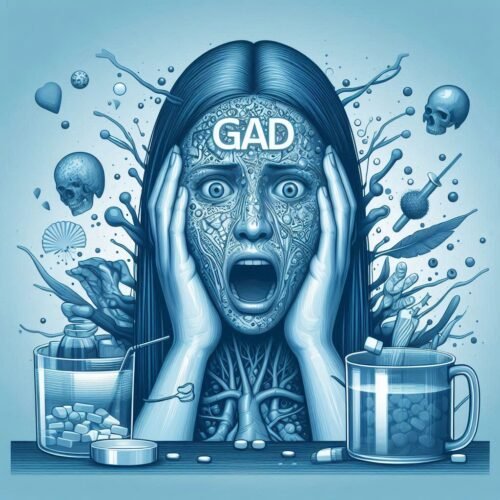
Do you often find yourself worrying about everyday issues without any apparent reason? Are you always anticipating disaster or excessively concerned about health, money, family, work, or school? If so, you might be experiencing generalized anxiety disorder (GAD).
GAD is more than occasional worry; it can make daily life feel like a constant state of fear and dread. The good news is that GAD is treatable. Read on to learn more about GAD, its symptoms, and how to find help.
What is Generalized Anxiety Disorder?
Generalized anxiety disorder (GAD) involves overwhelming worry about different aspects of daily life. While occasional anxiety is normal, people with GAD experience intense and chronic stress that interferes with their daily activities. This disorder typically develops gradually and is more common in women than men.
Signs and Symptoms of GAD
People with GAD may experience a range of emotional and physical symptoms, including:
- Excessive Worry: Feeling overly worried about everyday things.
- Trouble Controlling Worry: Difficulty managing feelings of nervousness.
- Restlessness: Feeling on edge and having trouble relaxing.
- Concentration Issues: Difficulty focusing or feeling like your mind goes blank.
- Easily Startled: Being jumpy or easily surprised.
- Sleep Problems: Difficulty falling or staying asleep.
- Fatigue: Feeling tired quickly or all the time.
- Physical Discomfort: Headaches, muscle aches, stomachaches, or other unexplained pains.
- Difficulty Swallowing: Trouble swallowing without an apparent medical reason.
- Irritability: Feeling easily annoyed or irritable.
- Sweating and Lightheadedness: Sweating excessively or feeling dizzy.
- Frequent Bathroom Visits: Needing to go to the bathroom more often.
Both children and adults with GAD may also experience these symptoms, often impacting their performance at school, work, or daily activities.
Please Note: If you are experiencing any of the symptoms mentioned, please do not think that you have GAD. It may not be. See a professional instead of self-diagnosing.
Causes of Generalized Anxiety Disorder
The exact cause of GAD isn’t fully understood, but several factors can contribute, including:
- Genetics: Having a family history of anxiety disorders can raise the likelihood of developing GAD.
- Brain Chemistry: Imbalances in brain chemicals involved in fear and anxiety.
- Environmental Factors: Experiencing Stressful or traumatic life events.
- Personality: Certain personality traits may make individuals more prone to anxiety.
Treatment Options for GAD
If you think you have GAD, it’s essential to seek professional help. A physical exam could help eliminate other conditions, or a mental health specialist could provide support. Psychotherapy and medication may also help you manage GAD.
- Psychotherapy: Cognitive-behavioral therapy (CBT) is highly effective in treating GAD. It helps you learn different ways of thinking and reacting to situations that reduce anxiety.
- Medication: Antidepressants and anti-anxiety drugs may help manage symptoms. Your healthcare provider will work with you to find the best medication.
Lifestyle and Self-Help Strategies
Making lifestyle changes and implementing self-help strategies can support your recovery:
- Regular Exercise: Physical activity is good for us, even if you take a short walk. Then, consider taking longer walks once you’re feeling confident.
- Healthy Diet: Eating well and having a balanced diet can help our well-being.
- Adequate Sleep: We all need to be able to rest. So ensure you are getting enough because this is crucial for mental health.
- Relaxation Techniques: Deep Breathing, Meditation, or anything you feel comfortable with to help calm your mind.
- Support Network: We all need good, solid relationships, and support from friends, family, or support groups can make a significant difference.
We can struggle to try to live with GAD, but proper treatment and support will help to improve your day-to-day life. Remember, it’s a journey, and every small step towards recovery is a victory.
Sources: NIH.Gov and Mayo Clinic

